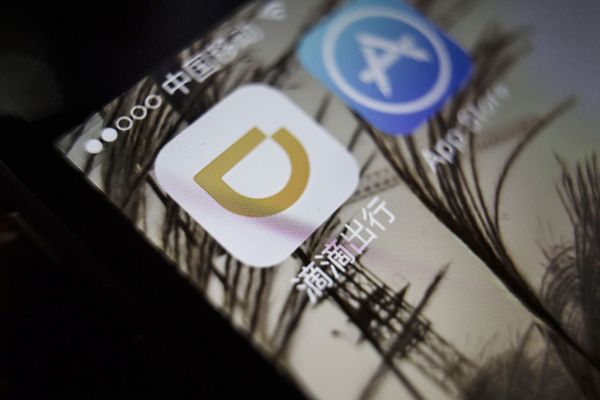Fresh from its first international expansion following the acquisition of Brazil’s 99 last week, Chinese ride-hailing giant Didi Chuxing announced another significant move by revealing plans for its own bike-sharing platform.
The platform will integrate Ofo — the company that counts Didi as an investor — as well as financially stricken service Bluegogo — which Didi has been linked with — and other “potential partners” further down the line.
Importantly, Didi will roll out its own bike-sharing service — but there’s no timeframe on that.
That’s quite a lot to digest, but in reality the signs of something brewing have been on display.
Last year Didi’s app integrated rides from Ofo — which competes with Mobike as the world’s largest bike-sharing companies — but Chinese media reports suggested that the two companies fell out in recent months. That’s said to be after Didi dispatched executives to work inside Ofo, only to have them return, while Mobike and Ofo have stolen a portion of Didi’s short distance rides by offering a simpler option than waiting on a driver.
Indeed, in Ofo’s case, the company has even expanded to offer some Didi-like taxi-hailing services.
That appears to be where Bluegogo might come into the picture. The company, which had been third to billion-dollar-valued Ofo and Mobike, suffered a financial meltdown at the end of 2017 despite having raised some $90 million.
The company went quiet amid reports of its imminent closure, but in recent weeks there have been rumors of a deal with Didi. Didi isn’t buying the company as some had claimed, in fact it isn’t exactly clear what the financial relationship is.
We asked Didi to clarify but are waiting to hear back.

An Ofo bike in Shanghai
The short announcement from the company today said it had “reached agreement with Bluegogo on cooperation arrangements.” The most obvious part to that is integrating its service into the popular Didi app, which claims 450 million registered users across a range of services beyond simply taxi rides, but you’d presume that there is some financial support too given Bluegogo’s issues.
As for Bluegogo’s existing users, who paid up for a deposit for the service and probably figured it was lost, Didi is offering to convert the sum into credit for its services. It said that it will not charge users deposits for bike services on its new platform.
This move is an intriguing one when you consider that there have been persistent rumors of a merger between Ofo and Mobike. That seems to be what is fueling Didi’s move, which is a fairly hostile one against Ofo.
Why else would Didi — which let’s remember is a company that purports to be valued at $56 billion based on December’s $4 billion fundraise — end Ofo’s exclusive integration inside its app by adding a company that is on its last legs just to provide more competition. It certainly seems Didi is fearful of an Ofo-Mobike consolidation move, and, having already bought out its biggest competitor Uber China, bike-sharing may have been marked as the main risk to its business at home on Chinese soil.
You could argue that integrating bike sharing services benefits the companies, and that’s true to a point when they are emerging. But privately Mobike and Ofo would acknowledge that having users on the service via their own app gives them a lot more control, not to mention the potential to enter new verticals that might challenge Didi. With an all-encompassing platform like this, Didi is bidding to be the gatekeeper in control. It would prefer Ofo, Mobike and Bluegogo to be features inside its app, rather than full-blown competition, and that’s exactly what this plan makes them.
We’ll have to see how the platform plays out — Didi has omitted to give a lot of important details at this stage — but it seems clear enough bike-sharing has gone from a nice addition to the enemy.
Article updated to correct that Didi invested in Ofo
